- News
- Reviews
- Bikes
- Components
- Bar tape & grips
- Bottom brackets
- Brake & gear cables
- Brake & STI levers
- Brake pads & spares
- Brakes
- Cassettes & freewheels
- Chains
- Chainsets & chainrings
- Derailleurs - front
- Derailleurs - rear
- Forks
- Gear levers & shifters
- Groupsets
- Handlebars & extensions
- Headsets
- Hubs
- Inner tubes
- Pedals
- Quick releases & skewers
- Saddles
- Seatposts
- Stems
- Wheels
- Tyres
- Tubeless valves
- Accessories
- Accessories - misc
- Computer mounts
- Bags
- Bar ends
- Bike bags & cases
- Bottle cages
- Bottles
- Cameras
- Car racks
- Child seats
- Computers
- Glasses
- GPS units
- Helmets
- Lights - front
- Lights - rear
- Lights - sets
- Locks
- Mirrors
- Mudguards
- Racks
- Pumps & CO2 inflators
- Puncture kits
- Reflectives
- Smart watches
- Stands and racks
- Trailers
- Clothing
- Health, fitness and nutrition
- Tools and workshop
- Miscellaneous
- Buyers Guides
- Features
- Forum
- Recommends
- Podcast
news
“Pandering to the few that don’t even pay to be on the roads”: New Dutch-style roundabout branded an “expensive disaster area” by drivers – but cyclists say it’s “100% safer” and the “start of better cycling infrastructure” + more on the live blog
SUMMARY
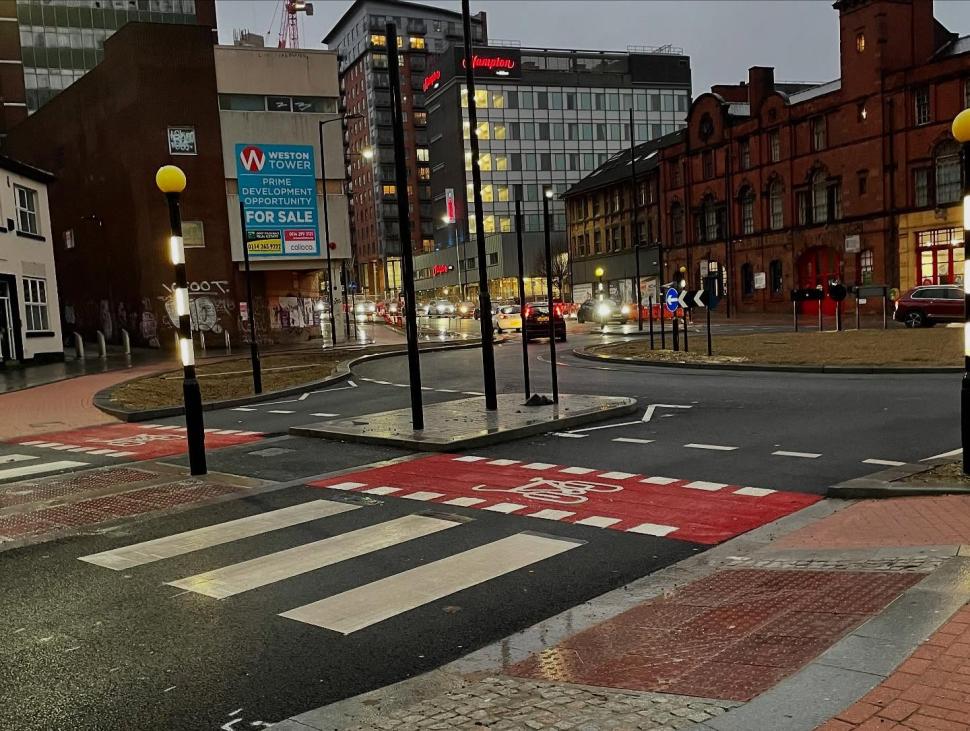 Dutch roundabout, West Bar, Sheffield (Les Sturch)
Dutch roundabout, West Bar, Sheffield (Les Sturch)11 December 2024, 09:10
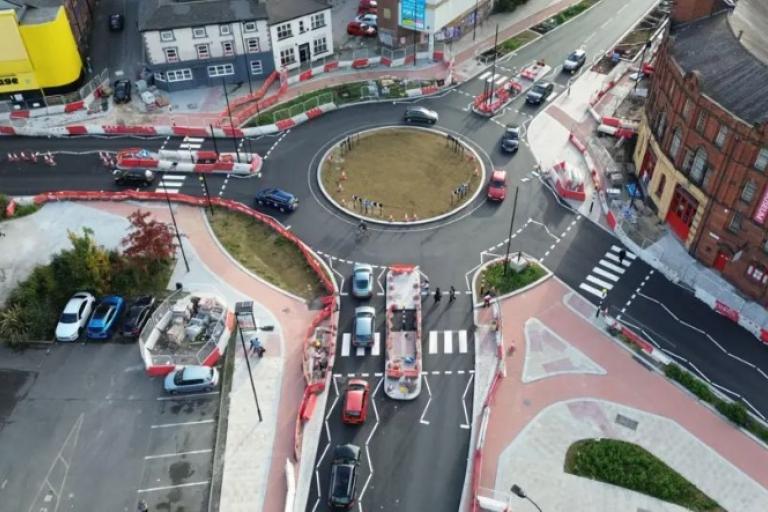
“Pandering to the few that don’t even pay to be on the roads”: New Dutch-style roundabout branded an “expensive disaster area” by drivers – but cyclists say it’s “100% safer” and the “start of better cycling infrastructure”
After almost two years of construction work, and months of delays, the first ever ‘Dutch-style’ roundabout in Sheffield – and only the second of its kind in the UK – has finally opened this week.
And it’s fair to say it’s already diving opinion.
First introduced in the UK in Cambridge in 2020, the new roundabout layout at West Bar in Sheffield, which was originally due to be completed in October after work began in April 2023, offers priority to cyclists and pedestrians, with motorists asked to give way to more vulnerable road users on entering and exiting the roundabout (so you can already see why there’s a bit of debate about it).
Based on a design made popular in the Netherlands (hence the name), zebra crossings have been installed at each arm of the Dutch-style roundabout, giving pedestrians priority over drivers, while a one-way protected cycle lane moves clockwise around the infrastructure, providing dedicated space for those on bikes, with give-ways at each exit.
Sheffield City Council says the new layout at West Bar forms part of wider plans to improve sustainable links to the city centre, “making it and easier for people to get around the city in an active way”.
At the infrastructure’s grand unveiling on Monday, three-time Olympic team pursuit champion Ed Clancy, in his role as South Yorkshire’s Active Travel Commissioner, said the West Bar scheme “demonstrates Sheffield Council’s ambition and commitment to being at the forefront of design that gives people more freedom and choice about getting around”.
“New walking, wheeling and cycling projects are happening right across South Yorkshire, creating better places and more opportunities for us all to move more and move differently,” the 39-year-old said.
(Sheffield City Council)
“For too long people wanting to cross West Bar roundabout to get around the city have had to wait for a gap in the traffic to do so in a safe manner,” added Sheffield City Council’s transport committee chair Ben Miskell.
“The changes we are delivering will make it easier for those on foot or on their bike in fantastic new ways [while managing] the speed of traffic using the roundabout, increasing safety for everyone.”
However, due to the delays which have hit the project in recent months, West Bar’s Dutch roundabout isn’t quite the finished article, with some sections of the protected bike lane exiting the roundabout yet to be completed.
(Les Sturch)
The BBC has also reported that another 20m section of the cycleway was unfinished at the time of the infrastructure’s opening, and one stretch featured barriers across the lane where repair work was being carried out.
“Hopefully, in time they will finish all this off and join it up,” cyclist Charlotte Tallyfield told the BBC after using the new roundabout.
“It’s a huge issue everywhere in the city: the lanes still disappear and you suddenly get abandoned on to the road.”
Despite these teething problems, the roundabout’s design – and the priority it offers to vulnerable road users – already seems to be a hit with local cyclists.
“I feel very safe going round here. It’s not too fast and all the cars stopped for me. I’m really pleased it’s open,” cargo bike rider Billie Turner told the BBC, describing the roundabout as “perfect for cyclists”.
(Les Sturch)
Meanwhile, other cyclists have described the new layout as “100 per cent safer for cyclists” compared to the mayhem that preceded it.
“It used to be mayhem and chaos, you would be trying to cross anywhere on the roundabout,” Mila Pesa Mezzola told Sheffield Live this week.
“It’s a lot easier now – we once spent 20 minutes waiting to cross and eventually just had to go. When they were doing the work, the path was really small and we kept going onto the main road.”
“It’s definitely easier as you don’t have to keep waiting. You can just cross anywhere,” added Ighauo De La Vega.
“There used to be loads of litter and food on the road when they were doing the construction work, but now it’s a lot better.”
“I came before the work was done and it felt like a maze when I was trying to cross. But it looks better and it’s 100 per cent safer now,” agreed Richard.
And university student Mingli said: “Every car has to wait for you, which makes you feel quite safe. The drivers have all been polite and have stopped. I think the new roundabout will help save a bit more time as you aren’t waiting to cross.”
“It’s all part of a jigsaw. It can’t just be this, we need a larger network,” added Peter Holt, who said he hoped the roundabout would mark the “start of better cycling infrastructure” in Sheffield.
“It should be welcomed, though, because it shows our council and hopefully other councils this is the way to do it.”
(Les Sturch)
However, not everyone was as welcoming when it came to the new infrastructure.
“I strongly believe this will cause more rear-ended bumps than a normal roundabout would,” Sheffield-based driving instructor Nadeem told the Telegraph, which also reported, in classic Telegraph-style, that the new layout had immediately caused “traffic jams” in the area.
“With these sorts of roundabouts there are more cons than pros. By the time a pedestrian is spotted it is too late to brake as the driver is usually focusing on the road far ahead rather than what they can see in their peripheral vision.”
“Can see this being an expensive disaster area,” Paul Cook said on social media. “No bloody wonder we’re missing £22bn.”
“I drove around it the other day and there are no road signs explaining it on the approach to it at all so if you don’t know about it you won’t know how to use it properly. It’s ridiculous!” wrote Kat.
> More collisions at UK's first Dutch-style roundabout than old layout, figures reveal
“Problem I see is idiots coming off the roundabout too fast and hitting someone on crossing,” added Troy. “Also coming off roundabout, stopping, then someone rear ends you. I know it works well in Holland, but cyclists and pedestrians well outnumber cars.”
And anti-cycling bingo enthusiast Mike concluded: “Pandering to the few again that don’t even pay to be on the roads.
“Don’t they realise A&E have enough to cope with already, disaster waiting to happen, and then it will be redesigned, wasting another few million quid.”
Well, I suppose you can’t please everyone…
11 December 2024, 14:17
A closer look at the new Dutch-style roundabout everyone’s talking about in Sheffield
“Simple as that,” indeed, Mr BBC Sheffield presenter.
If only the car-brained social media addicts in the Facebook comments section thought the same…
11 December 2024, 16:38
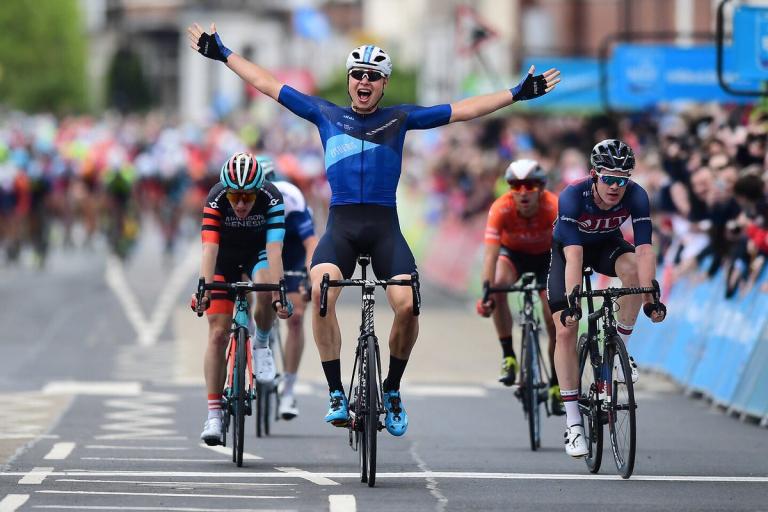
Last-minute bid to form men’s British Conti team following demise of Saint Piran collapses, due to inability to attract title sponsor
A last-ditch effort to piece together a British men’s Continental team from the ruins of Saint Piran has collapsed due to an inability to attract a title sponsor at such short notice, the rider behind the attempt, Harry Tanfield, has confirmed today.
In late November, it was revealed that the formerly dominant domestic squad Saint Piran was closing at the end of 2024, leaving no remaining men’s UCI Continental team based in Britain for the first time since 2004, following the demise of Trinity earlier that month.
The Cornwall-based outfit, which was established in 2018 before stepping up to UCI Continental level in 2021, said the decision to shut up shop follows a “tough season” as the squad was hit by sponsorship troubles following what it called “turbulent media coverage”.
One of the riders left without a team for 2025 following Saint Piran’s collapse, Commonwealth Games time trial silver medallist Harry Tanfield, responded to the news by launching an ambitious effort to piece together a new team and apply for a UCI Conti licence, ahead of the governing body’s 6 December deadline.
However, the 30-year-old told Cycling Weekly today that the struggle to raise sufficient funds in time meant his bid never got off the ground.
(Zac Williams/SWpix.com)
“We can’t go Continental, that’s just not possible,” Tanfield said. “We’re not really sure what to do now. I kind of just want to have a week off to compose my thoughts. We can’t go Continental so there’s no deadline now to reach. If we want to register an elite team [racing in British domestic events] then I think we can do that.
“There are a few things that could happen but as of yet I haven’t got anything confirmed. It would be nice if a team could get off the ground in some way here in the UK.
“I’m just going to keep looking for the sponsorship now going forward to 2026 as we can’t make the deadline for this year as it's passed now, it’s gone. British Cycling said to come back in November next year.”
> Team GB's Charlie and Harry Tanfield struck by motorist in “intentional” hit and run
Following Tanfield’s bid, British Cycling were reportedly concerned about the proposed new team’s links to Saint Piran, after the Cornish squad attracted negative headlines in recent months for using non-UCI approved framesets imported from China (sparking an investigation from cycling’s governing body), while founder Richard Pascoe was accused of charging riders looking to join the squad £500 for their performance data to be analysed.
However, Tanfield played down the links to his old squad, and said he will now focus on pitching plans for a new elite team to the national governing body.
“It is just protocol and you can’t change it,” the Tour de Yorkshire stage winner said. “And anyway, even if they had given us an extra month to do something it doesn’t change anything, you can’t get a title sponsor in a month. It’s just not possible for us so end of. It is what it is.
“I’ll just be plugging away over the winter essentially and into next year to just see where I can go with this. Some of the companies we approached regarding sponsorship were really interested, but they just didn’t have the marketing budget at this time of year so can’t do anything about it.
“Hopefully we could maybe try and get something off the ground for 2026 but I’m not too sure.”
11 December 2024, 17:11
Shimano Hollowtech crank failures, one year on…
Over a year ago, Shimano finally rolled out a recall in the United States and an ‘inspection programme’ in most other territories for its faulty and dangerous Hollowtech cranksets, acknowledging, after years of speculation, that there was a serious problem with the cranks.
And now, Dan – with the help of bike shops, cyclists, road.cc readers, industry figures, and a law firm – digs deep to discover what happened next. Trust me, this is one you won’t want to miss…
> How component giant Shimano’s handling of its dangerous crankset debacle is continuing to damage its reputation
11 December 2024, 15:48
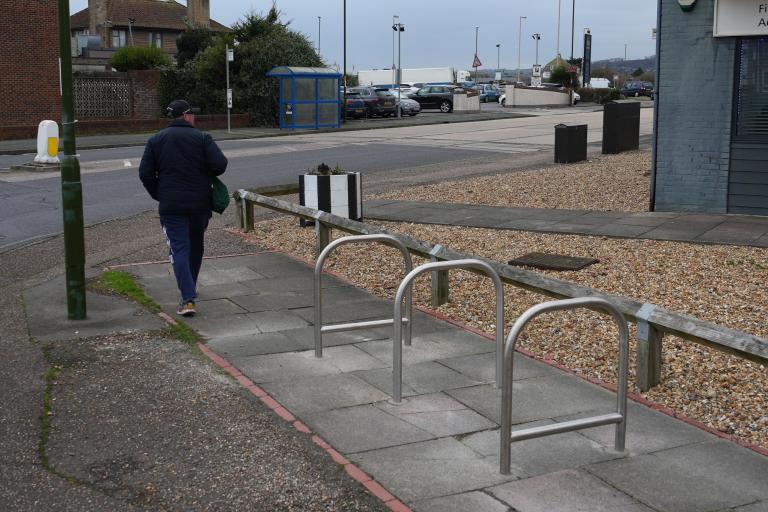
When you’re confused by the word ‘middle’: Council criticised for installing “stupid” new bike racks – which the local paper incorrectly described as positioned “in the middle of the pavement” in bizarre anti-cycling headline
Here on the live blog, we’re well aware that certain anti-cycling antagonists – looking at you, Telegraph headline writers – have a hard time when it comes to distinguishing where the middle of something is.
For example, are cyclists advised for safety purposes, and to prevent close passes, to ride in the middle of the lane? Or is it the middle of the road? That’s a conundrum which has baffled many whose only knowledge of the Highway Code is their own distorted version of it frequently aired during tiresome social media debates.
Over at the Argus in Brighton, however, there appears to be confusion over what constitutes the middle of the pavement, for a change.
A new set of cycle parking stands, recently installed on Beach Green in Shoreham, have attracted the ire of the usual car-brained social media set, due to what the Argus has described as their “stupid” positioning “in the middle of the pavement” – despite photographic evidence clearly showing the stands located at the far reaches of the decent-sized footpath.
Posting some curiously close-up images of the racks on Twitter, local Eddie Mitchell said: “There is a large space to the left of the pavement to put the bike stands, the public on autopilot use the pavement.”
That prompted others, such as Mozza91648022, to chime in, writing: “Yep, that will stop Bob on his mobility scooter. And Jane with her pram. Good work, money well spent.”
However, not everyone was convinced by Eddie’s claim that the bike racks were a fiendish plot by the council to block the pavement for people who don’t cycle.
“Presumably a person in a wheelchair would just go around. It all looks uneven to be honest. I do not think a wheelchair is restricted to only going on broken pavement slabs,” said Street Hawk.
That interjection – a far cry from the “stupid council t***s” approach adopted by most other commenters – prompted photographer Eddie to reply: “The local beef is they have been set in the pavement when there is a large chunk of unused space right by the install area. A lack of common sense basically.”
So, a storm in a teacup basically – which nonetheless enabled the Argus to wheel out a rather erroneous “Cycle racks installed in middle of pavement” headline this morning.
Responding to all this ‘criticism’, a spokesperson from Adur and Worthing Council, who installed the racks, said: “We have recently installed a number of new bicycle racks across Adur thanks to government grant funding that will encourage sustainable active travel and further enable our residents to make journeys by bike or scooter.
“We’re sorry to hear that some residents aren’t happy with the location of the new bicycle racks outside the shops on Beach Green, so we’re looking at the options available to address the concerns raised.
“West Sussex County Council published a standard 28-day public notice to make locals aware of our plans to install the new bicycle racks outside the shops on Beach Green, during which no objections were made.
“We’ve installed dozens of new bicycle racks across the district this year, all of which have been funded through the government’s UK Shared Prosperity Fund.”
But anything for an anti-cycling headline, eh?
11 December 2024, 16:05
Dear Middle Aisle Santa, can I please have a tonne of new cycling kit, bags, coats, luggage, accessories, and a weird Christmas tuxedo jumper? Thanks, Bauke
Looks like Lidl-Trek’s Bauke Mollema is well and truly kitted out for 2025 now:
The middle aisle must be devastated after that raid…
11 December 2024, 12:07

“Next time I will ride with two training wheels”: Eddy Merckx feeling “much better” after undergoing successful hip replacement surgery following “stupid” fall off bike
Eddy Merckx has joked that he will be digging out his old pair of stabilisers next time he rides his bike, after undergoing successful hip replacement surgery for what the Cannibal described as a “stupid fall” while cycling earlier this week.
On Monday we reported on the live blog that the 79-year-old came off his bike while going over a railway crossing in Hombeek. He was taken to hospital immediately when it became clear he was in a lot of pain and had broken his right hip in the fall.
On Tuesday, doctors at AZ St Elisabeth hospital in Herentals performed a total hip replacement for what they described as a “common fracture”, with a statement from the hospital confirming that Merckx will begin rehabilitation today and that a “full recovery is expected”.
And speaking to various Belgian media outlets from his hospital bed, the five-time Tour de France winner said he was feeling “much better” after surgery.
“They gave me a new hip. The pain is not too bad at the moment,” he told Het Laatste Nieuws. “[Monday] it was terrible, but it’s better since the surgery.”
Describing the crash, Merckx said: “I fell on my hip and could not stand up. I was alone on the bike. Fortunately a few bystanders stayed. Otherwise, it would have been a disaster. I was scared, yes.
“It was a stupid fall. But it can indeed happen to anyone. Still, next time I will ride with two training wheels.”
A statement from the hospital, released yesterday, said: “The operation went very smoothly and a full recovery is expected. Eddy Merckx will now stay in the hospital for at least one night to recover from the procedure.
“Tomorrow his rehabilitation will begin, during which full support will be possible immediately, which means that most patients are back on their feet quickly.
“Full recovery usually takes a few months, but fortunately for Eddy Merckx, cycling is an excellent rehabilitation activity that is allowed after just a few weeks.”
Better get those training wheels sorted soon then, Eddy.
11 December 2024, 14:56
The unfortunate winter 2024 trend of ‘going to the gym in you cycling kit’ continues, as Pogi hits the weights
Are you allowed to wear the rainbow bands while lifting weights if you’re not the weightlifting world champion?
Better consult The Rules on that one…
11 December 2024, 11:39
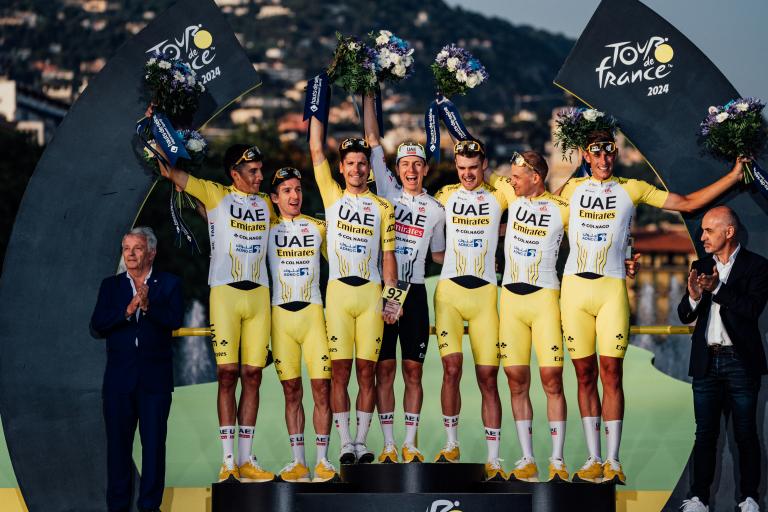
UAE Team Emirates confirms team has stopped using carbon monoxide rebreathing – as performance co-ordinator hits out at “sensationalist” reporting
UAE Team Emirates are no longer using the controversial method of carbon monoxide rebreathing to test their riders’ progress during altitude training camps, the squad’s performance co-ordinator has confirmed.
Last month, world cycling’s governing body, the UCI, called for the World Anti-Doping Agency (WADA) to “take a position” on the use of carbon monoxide inhalation in the peloton, after Escape Collective broke the news during this year’s Tour de France that UAE Team Emirates, Visma-Lease a Bike, and Israel-Premier Tech have access to a CO rebreather to test blood values.
Providing an accurate means of measuring key blood values such as haemoglobin (a protein that facilities the movement of oxygen in red blood cells), several pro squads have confirmed that they use CO rebreathers to track their riders’ progress during red blood cell boosting altitude training camps.
(ASO/Charly Lopez)
Both Tadej Pogačar and Jonas Vingegaard confirmed at the Tour that they had previously used carbon monoxide rebreathers, with Pogačar even dismissing the practice as a “pretty simple test” and claiming he’d never actually completed it, while Vingegaard told Danish reporters that there was “nothing suspicious” about the controversial rebreathing technique.
However, despite not breaking any current anti-doping rules, those very same carbon monoxide rebreathers also allow for precise dosing of the gas into the lungs, which could potentially assist riders’ bodies in producing more red blood cells and improve their aerobic capacity, enhancing their performance artificially – an alternative use of the equipment which all teams at the Tour denied using.
After urging WADA to take a stance on the issue, and requesting that teams and riders avoid using “repeated CO inhalation”, clarifying that “only the medical use of a single inhalation of CO in a controlled medical environment could be acceptable”, UCI president David Lappartient last week officially called for the method to be banned.
But if a ban does eventually come into effect, it shouldn’t have an impact on Pogačar, however, after his UAE Team Emirates performance co-ordinator Jeroen Swart confirmed that the squad has stopped using carbon monoxide rebreathing after finishing an 18-month-long “process”.
(ASO/Charly Lopez)
“To give you complete clarity on that, carbon monoxide rebreathing is a technique that has already been validated for 20 years and has been used by climbers, endurance sportsmen and athletes around the world to measure haemoglobin mass when they go to altitude,” Swart told Cyclingnews during UAE’s training camp in Spain this week.
“We’ve been very good with our altitude training camps in the last seven years. We feel that we’ve done a really good job in terms of the benefit, but there’s no way that you can quantify that clearly, other than measuring haemoglobin mass.
“So, two years ago, we decided to assess whether or not our riders were improving to our expectations. And so, it was an exercise that we conducted over 18 months and assessed the haemoglobin mass using carbon monoxide rebreathing which is a very standardised technique with very specific equipment.
“Actually, we finished that process now and our results show that our training camps are actually very well suited to the maximal adaptation for our riders which we see in the performances as well.
“So, we actually don't need to do the tests any further. We don’t plan to do any more.”
(ASO/Billy Ceusters)
After confirming the end of UAE’s dalliance with the controversial method, Swart then criticised Escape Collective’s apparently “sensationalist” initial reporting on the issue.
“But I think it’s quite a sensationalist article that’s been published and speculating about using a technique that would be quite complicated and probably not something that I can see anybody actually doing,” he said of the alleged performance-enhancing benefits.
“It doesn’t come across as realistic. So, I think there’s a lot of sensation.”
11 December 2024, 13:29
Weird anti-cycling opinion of the week: “Cyclists would be much safer if they had rear-view mirrors”
Looks like we need to add rear-view mirrors to the list of things cyclists need to do to keep themselves safe from dangerous drivers, alongside hi-vis, lights, helmets…
Yep, that peculiar comment – featuring a side helping of “Cycles should not share the road with cars” – was made in response to yesterday’s story about a driver (who happened to be the wife of former Scotland goalkeeper Allan McGregor) accepting a £255 fine and penalty points for using their phone while driving, before close passing a cyclist and running a red light.
“How would a rear-view mirror have changed this outrageous display of driving?” replied one cyclist. Good point.
“You mean we would be much safer if people could drive properly,” said another.
But… but… mirrors!
11 December 2024, 12:57
“All road users must take each other into account”: Evenepoel launches ‘Remco Reflex’ safety initiative with postal service involved in last week’s dooring crash
11 December 2024, 12:37
Forget Christmas, this is what cycling fans have been really waiting for…
Yes, it’s that time of the year again, when we get all excited for a second-tier bike race over Breton farm tracks that takes place in the middle of May.
And for the beauty that is the 2025 Tro-Bro Léon poster, the traditional flying pig has been joined by this year’s winner Arnaud De Lie… and the obligatory stampede of bulls:
Just like Vincenzo ‘the Shark of Messina’ Nibali, De Lie and his bullish nickname are a race promotor and animator’s dream.
I’m not sure how they would have coped back in the 1960s with Spanish climber Julio Jimenez, and his equally evocative but not quite as striking ‘Watchmaker of Avila’ nickname, however.
And I’d be intrigued to see the poster if Jasper ‘the Chocolatier’ Stuyven ever rocked up to Britanny and won – a pack of chasing chocolate truffles could be fun…
11 December 2024, 11:15
Cambridge Cycling Campaign’s Christmas charity appeal raises over £30,000 for community campaign helping “empower local groups working for better walking and cycling routes”
The Cambridge Cycling Campaign, Camcycle, has raised £30,120 for community active travel projects, through the 2024 Big Give Christmas Challenge, a seasonal match-funding initiative joined by over 1,000 charities across the UK.
The funds raised will support Camcycle’s ‘Cambridgeshire Community Placemakers’ project, which provides support for local community groups working for better walking and cycling routes and sustainable, healthy neighbourhoods.
The total raised this year came from 120 donors, including match funding by two local donors and the Reed Foundation, the founders of Big Gove, and was a record for Camcycle, meeting its aim to raise £30,000 to mark its 30th anniversary next year.
“We’re incredibly grateful to the community for getting behind our festive fundraising campaign with a record number of donors helping us reach our largest result ever,” Camcycle’s CEO Roxanne De Beaux said.
“This is a testament to the support from our community for Camcycle’s work and with these funds we can help even more local people create more great places in 2025.
“Thank you to everyone who contributed to Camcycle in 2024 as members, donors and volunteers: together you’re helping to enable more cycling in our region for a better future for everyone.”
Nick Flynn, of Better Walking for West Chesterton, one of the groups which benefitted from Camcycle’s fundraising efforts by using them to push for, and win, new active travel links during a town redevelopment project, said: “Camcycle played a critical role in the success of our campaign. Their strategic advice, support at council meetings, and ability to mobilise assistance from members were instrumental in achieving our goals. We couldn’t have done it without their invaluable help.”
11 December 2024, 10:23
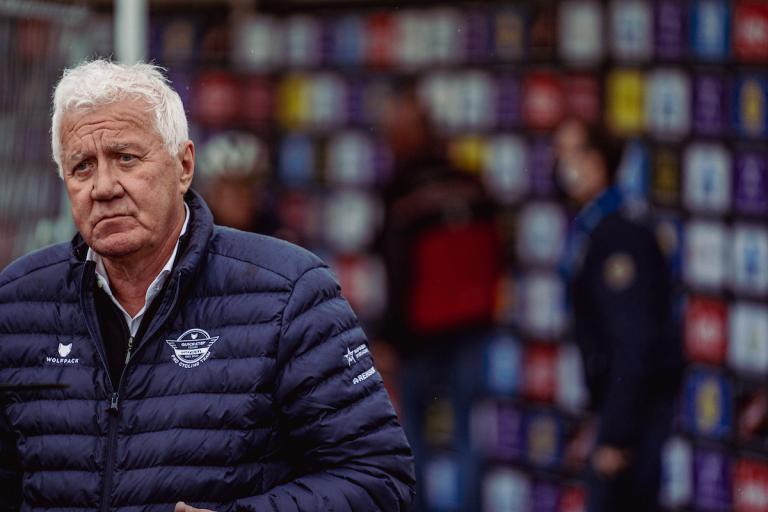
End of an era as Patrick Lefevere steps down as Soudal Quick-Step boss, a year earlier than planned
2025 will mark the start of a new era in professional cycling, at least in Belgium, after one of the sport’s brashest, most controversial – and successful – figures, Patrick Lefevere, announced last night that he is stepping down as CEO of Soudal Quick-Step, a year earlier than initially planned.
A remnant of cycling’s old-school, traditionalist past, and one seemingly attracted to controversy and conflict, Lefevere was initially due to stay on as the Belgian team’s manager before retiring in 2026, with COO Jurgen Foré primed to transition gradually into the CEO role.
However, it was revealed last night that Foré, who joined Soudal Quick-Step earlier this year, will now make the jump earlier than planned, with Lefevere now set to retire on 31 December.
(Zac Williams/SWpix.com)
69-year-old Lefevere, a pro in the 1970s who won Kuurne-Brussels-Kuurne and a stage of the Vuelta in 1978, founded the Quick-Step team in 2003, from the ruins of the old Mapei and Domo-Farm Frites squads.
Since then, he established the team as Belgium’s biggest squad and arguably the most dominant one-day classics outfit of the past 20 years, winning 22 monuments, including eight editions of home race the Tour of Flanders, courtesy of Tom Boonen (three times), Stijn Devolder (twice), Philippe Gilbert, Niki Terpstra, and Kasper Asgreen.
Lefevere also oversaw Quick-Step’s 124 grand tour stage wins, as well as its recent transition to GC contention at cycling’s three-week race, winning the Vuelta with Remco Evenepoel in 2022 – their first ever grand tour triumph – and following that up with third at this year’s Tour de France.
However, Lefevere’s legacy will arguably be tarnished by his brash public persona, which saw him criticise his riders in the press, leading to high-profile fallings out with Sam Bennett, Julian Alaphilippe (who he accused of partying and drinking too much), and most recently Kasper Asgreen.
In March, he was sanctioned by the UCI for “public comments considered as disparaging towards women”, after he claimed former double world champion Alaphilippe was “under the spell” of his partner and Tour de France Femmes organiser Marion Rousse.
And last year, Lefevere was heavily criticised after claiming that women’s cycling is “being pushed artificially” and that many female pros “are not worth” the current minimum wage set by the UCI.
He also likened Bennett’s return to Bora-Hansgrohe to a “women who still returns home after domestic abuse” and claimed on Belgian TV that it is not safe for women to be out alone after dark because “women used to not drink. Now they drink as much as we do. Not everyone is good at it, sometimes they tread on thin ice.”
(Zac Williams/SWpix.com)
In a statement announcing his impending retirement yesterday, Lefevere said: “It is a life changing moment to leave a role that I have committed so much of my life to. Cycling is a sport that I am still deeply passionate about, and it has been a great honour to head up this beautiful team and make so many special memories.
“But I felt that it was the right moment for this change. When I started to work with Jurgen one year ago, it was with a view to smoothing out the transition for when I would eventually leave. I have seen how his relationships with our sponsors and partners, as well as the team’s internal stakeholders has grown over the last 12 months, and I know that with Jurgen taking over as CEO and with the board’s backing, that this team has a bright future.
“There are countless people that I need to thank, far too many to mention individually, but there are of course my family, the team’s talented riders, our dedicated staff, our loyal sponsors, all of which is backed by the generosity and support of our team owner Mr Zdenek Bakala.”
11 December 2024, 10:02
Still stuck for bike-themed Christmas present ideas with just two weeks to go? Don’t worry, because we’ve got just the guide for you…
After obtaining a PhD, lecturing, and hosting a history podcast at Queen’s University Belfast, Ryan joined road.cc in December 2021 and since then has kept the site’s readers and listeners informed and enthralled (well at least occasionally) on news, the live blog, and the road.cc Podcast. After boarding a wrong bus at the world championships and ruining a good pair of jeans at the cyclocross, he now serves as road.cc’s senior news writer. Before his foray into cycling journalism, he wallowed in the equally pitiless world of academia, where he wrote a book about Victorian politics and droned on about cycling and bikes to classes of bored students (while taking every chance he could get to talk about cycling in print or on the radio). He can be found riding his bike very slowly around the narrow, scenic country lanes of Co. Down.
Latest Comments
- newbankgyratory 12 sec ago
This website offers suitable data: https://www.automobiledimension.com/large-suv-4x4-cars.php
- newbankgyratory 33 min 6 sec ago
Perhaps park the goods in a US Customs Bonded warehouse and then import them out of there when the tariff nonsense settles down?...
- Dnnnnnn 41 min 37 sec ago
Good to see a road.cc review of what must be one of the UK's best-selling 'proper' road bikes. 6/10 feels a little harsh though: the tyres could be...
- PRSboy 1 hour 27 min ago
Another thing ruined by the Americans
- Miller 2 hours 46 min ago
Nice to see WvA featuring in the finale.
- Miller 2 hours 49 min ago
I have known more than one elder statesman of the club die of a heart failure while out on a ride. Sometimes I feel that's about to happen to me,...
- Pub bike 3 hours 7 min ago
Via the "wireless active steering system".
- Hirsute 3 hours 30 min ago
137m is the farthest I have observed when quickly looking at the Garmin unit....
- pockstone 3 hours 48 min ago
Yours worked wonders, but if you insist, I'll hop to it...why the need for extra police? Did the fire brigade bottle it?
- Jamminatrix 4 hours 2 min ago
As if Tadej Pogacar's slavery-supporting jersey is any different...

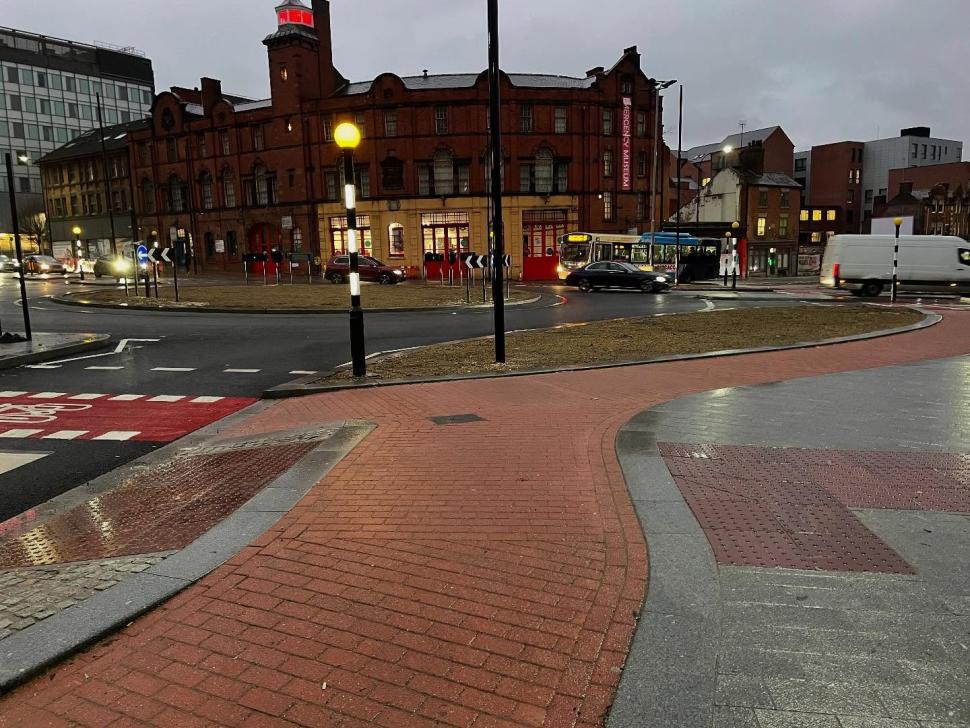
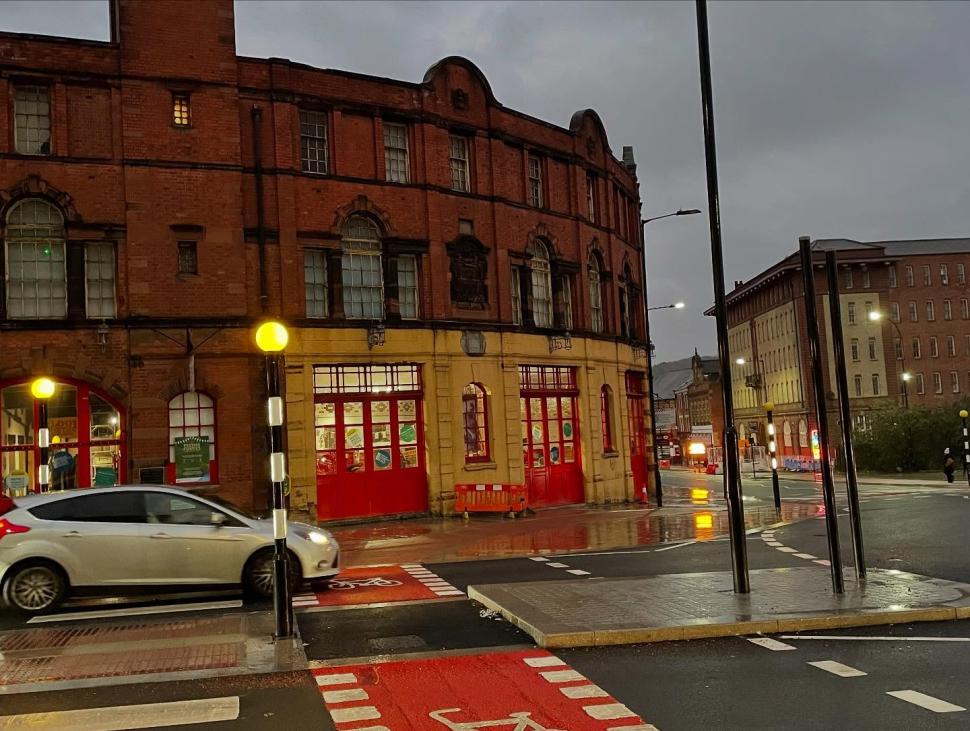

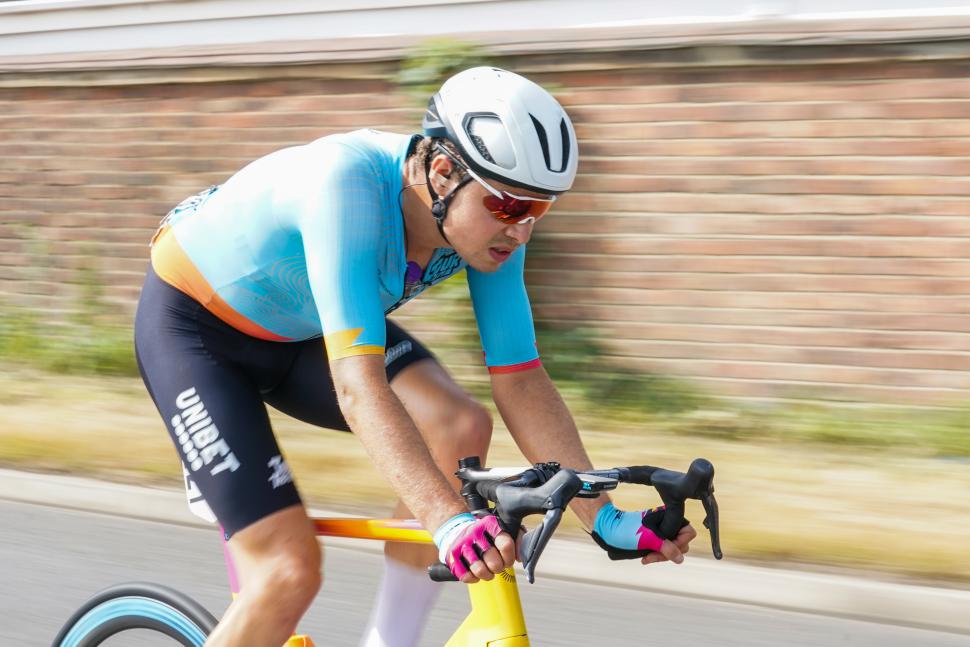
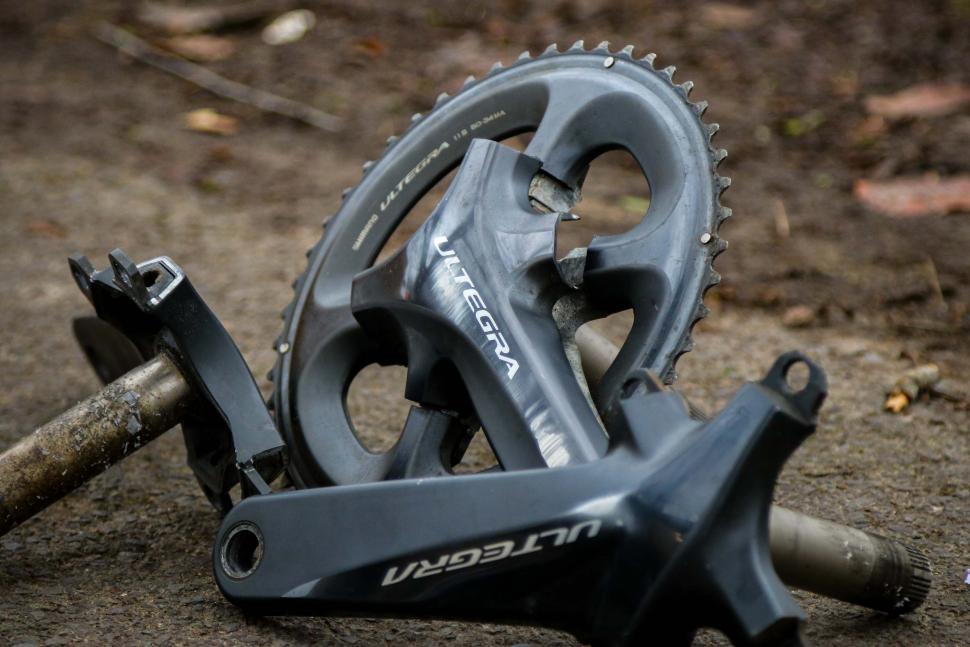
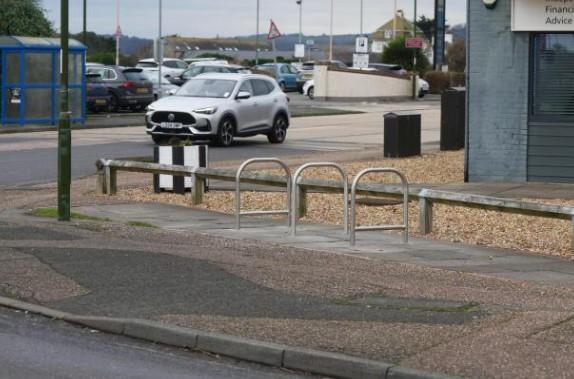
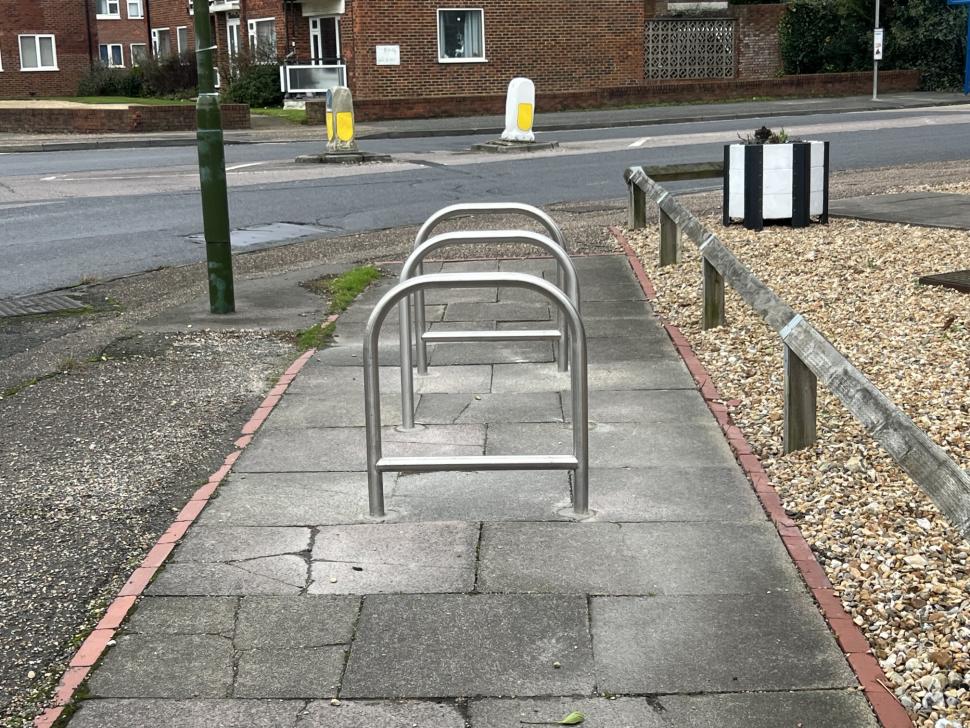
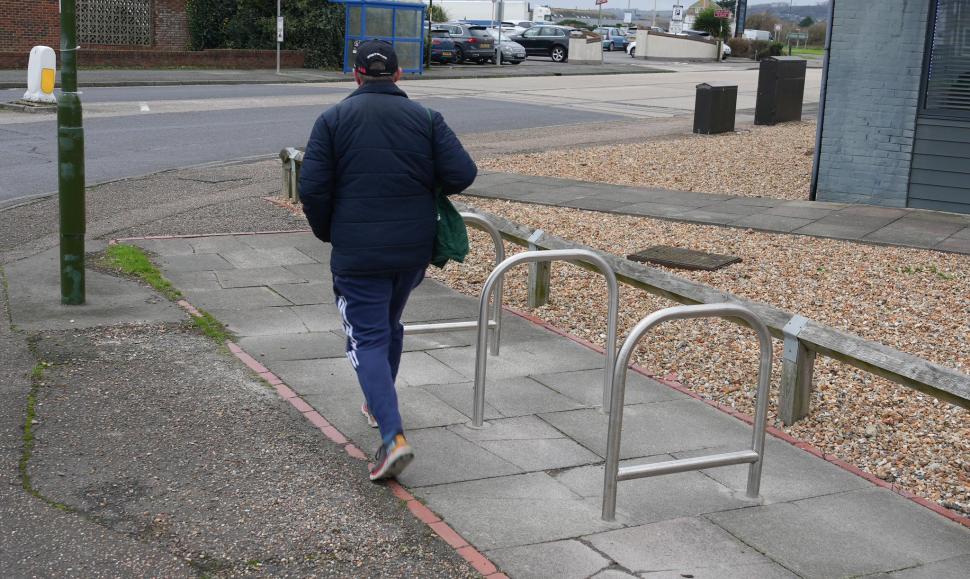

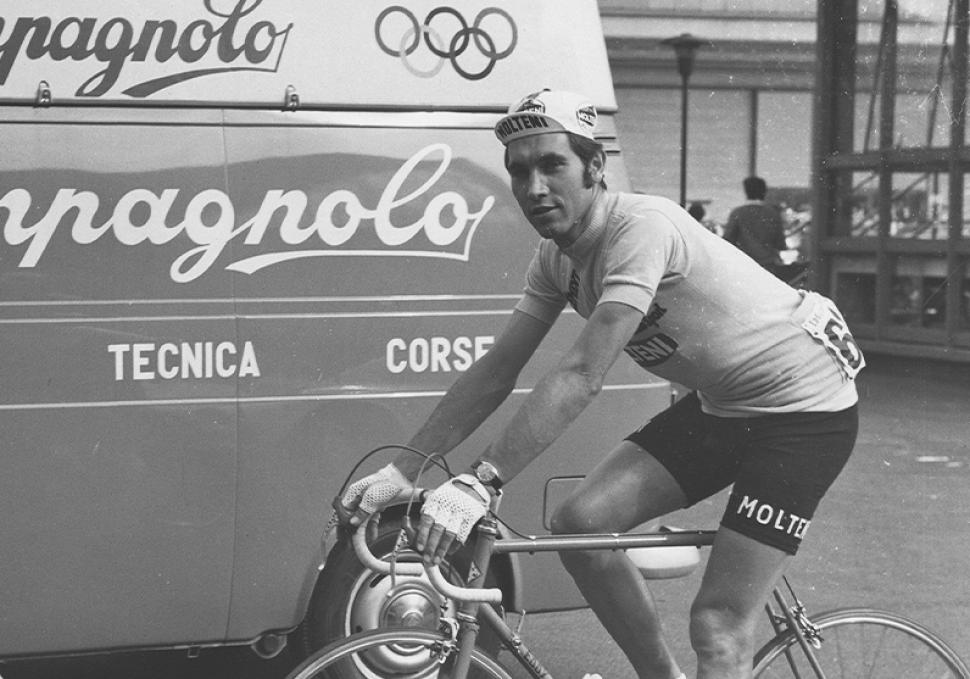
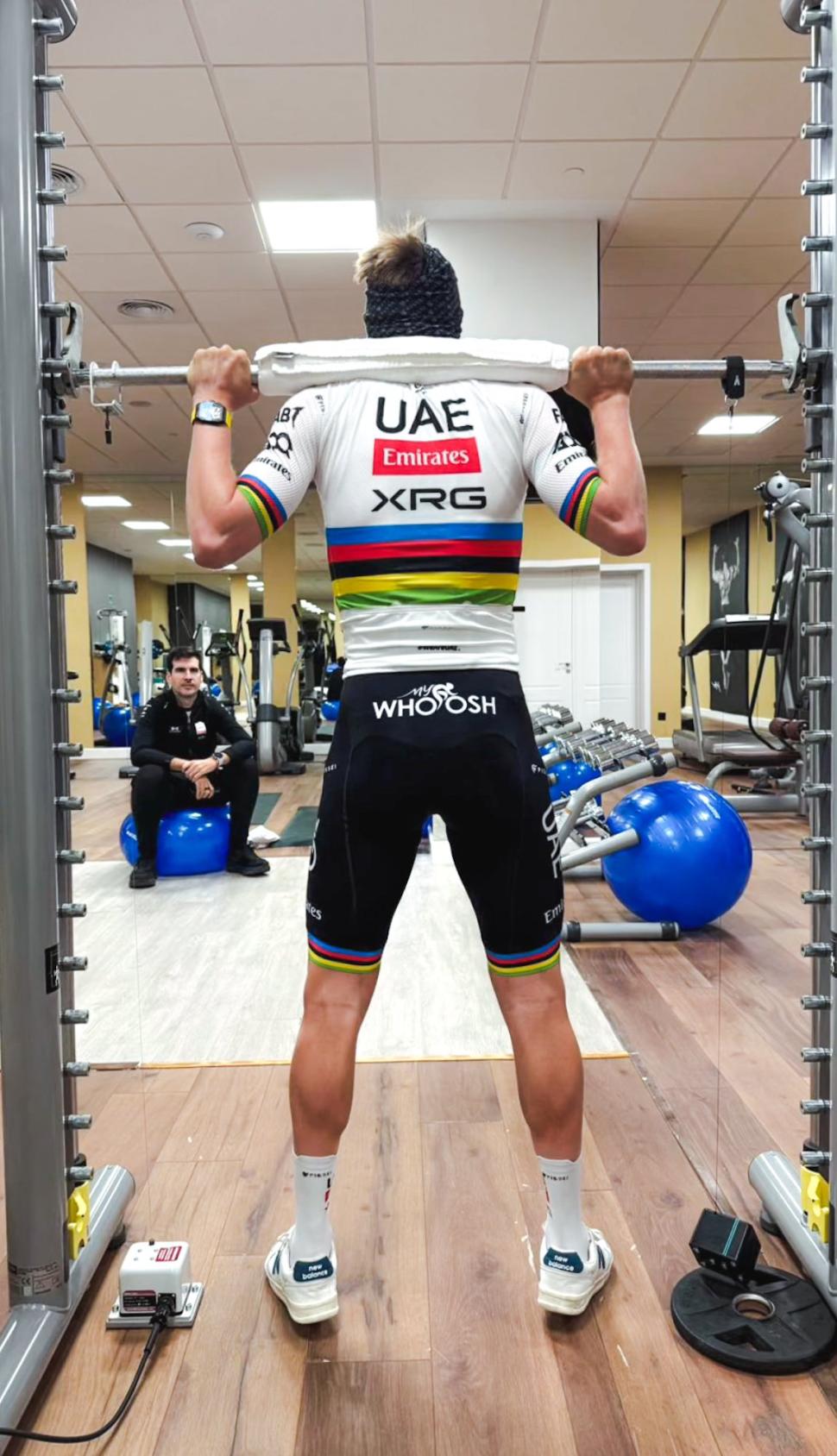
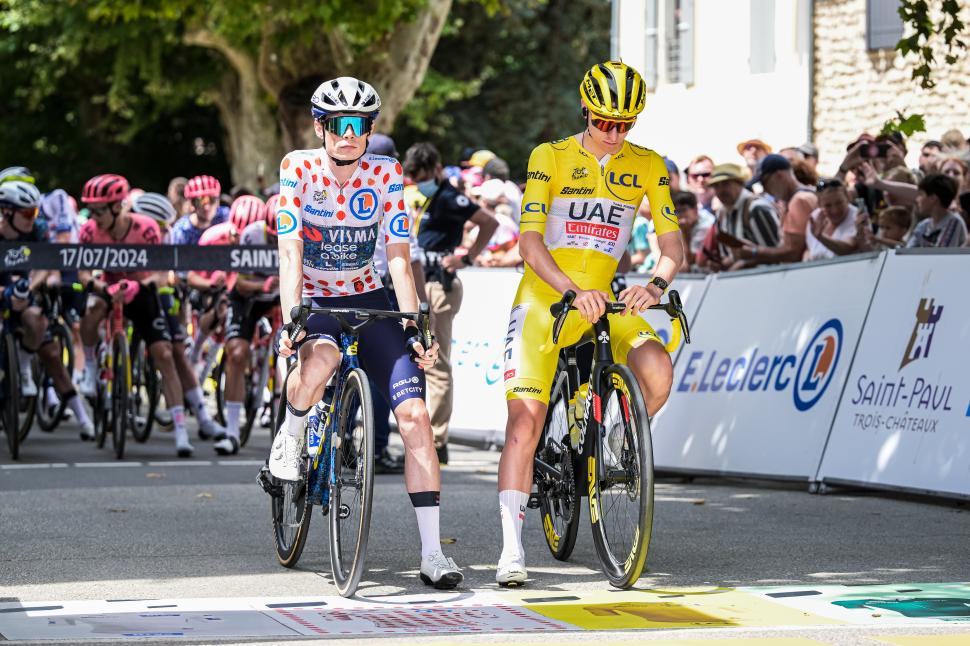

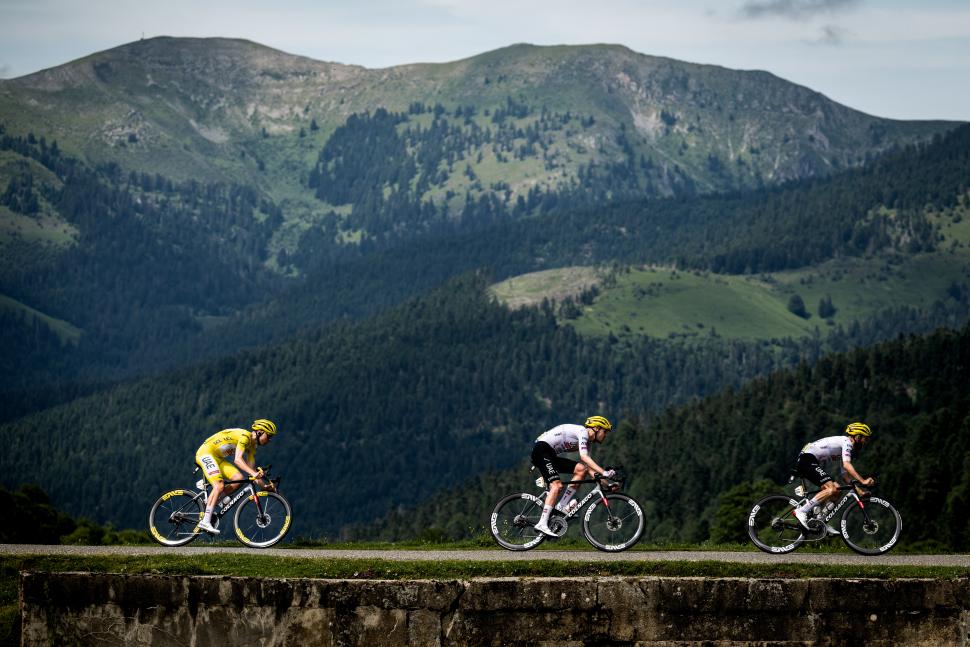

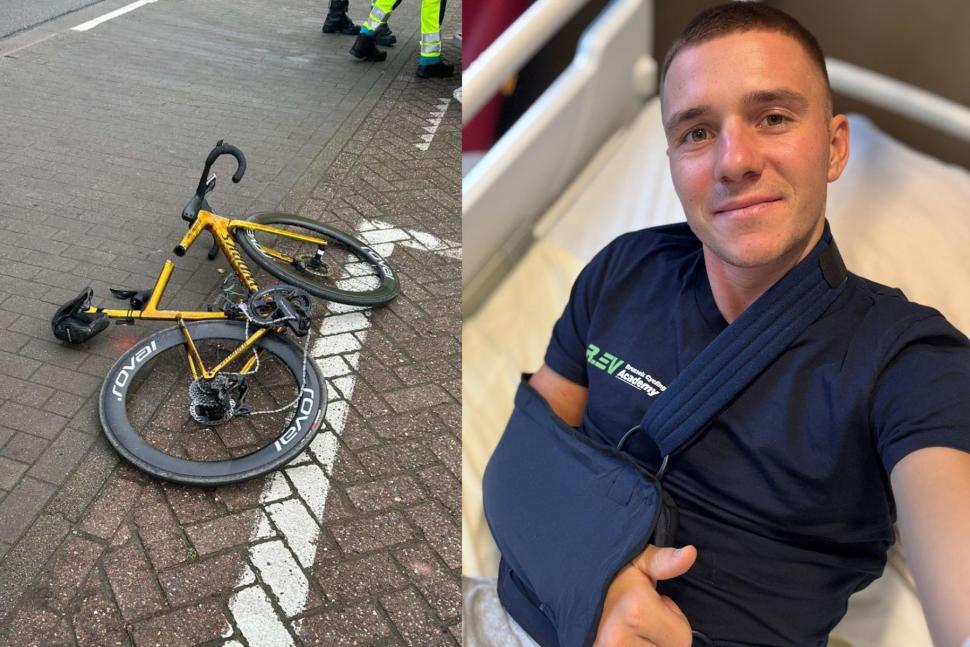
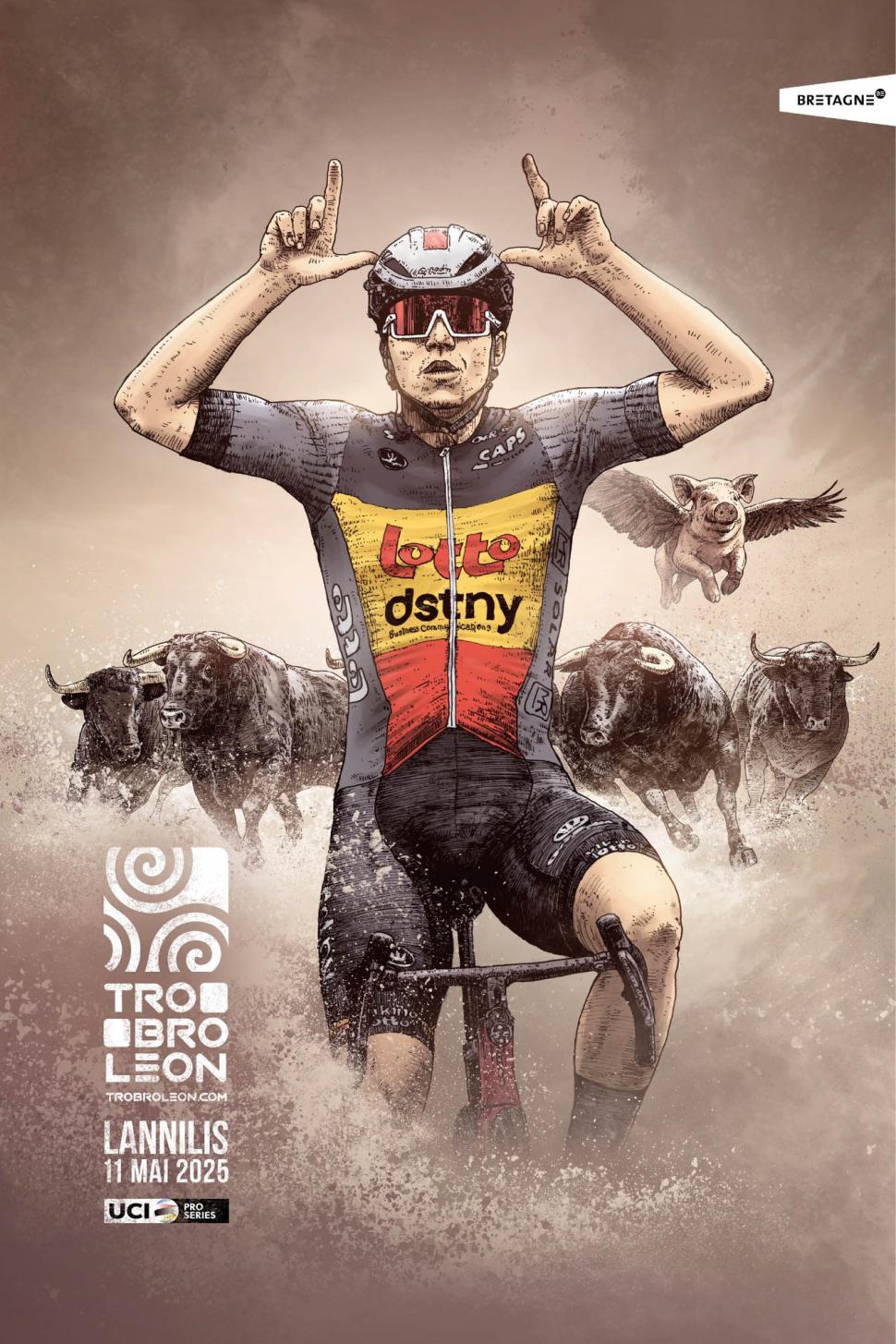

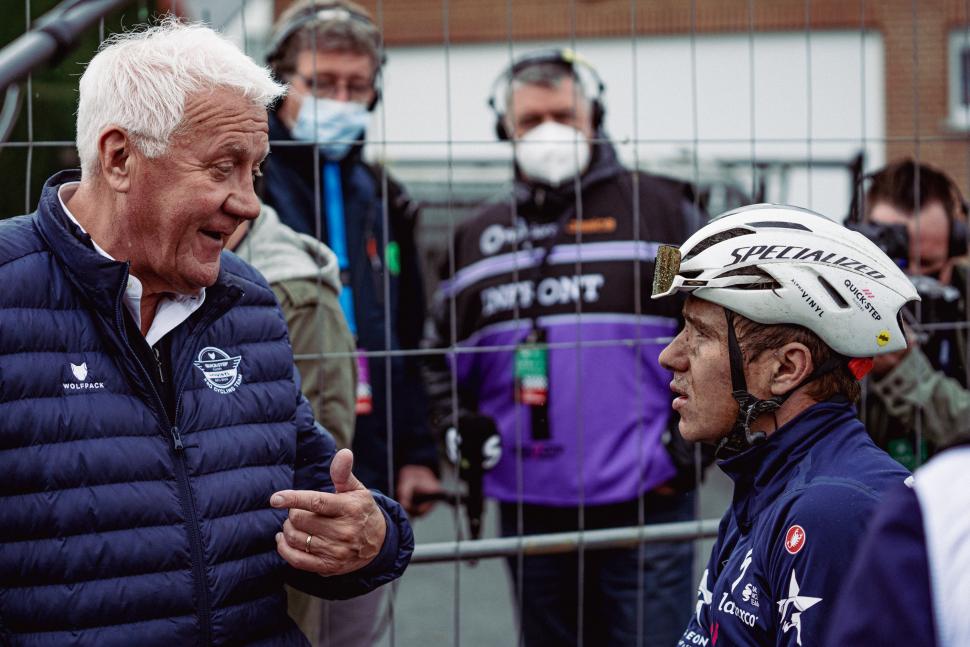
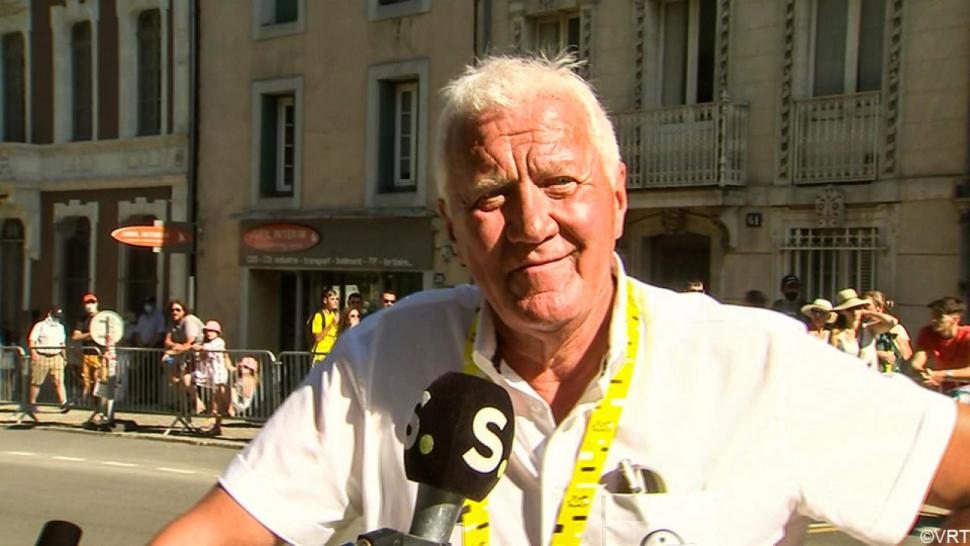
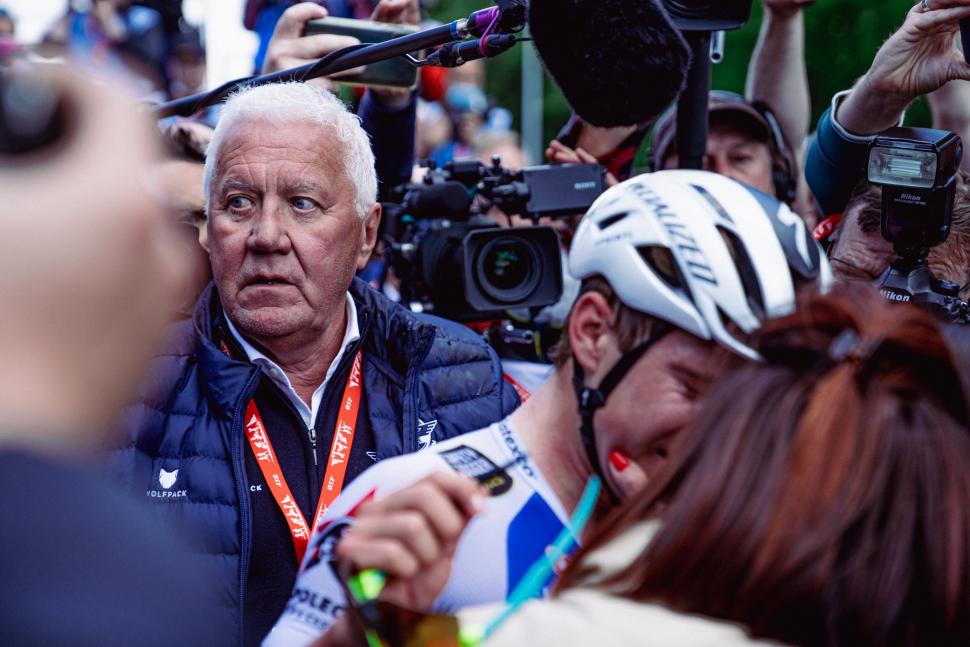

Add new comment
54 comments
Roads are paid for from general taxation. If you pay income tax you are contributing to transport infrastructure. There is no 'road tax' only Vehicle Excise Duty (VED).
The local and some not so local carbrains have been very angry about this "Dutch roundabout', despite Sheffield having had roundabout with zebra crossing for decades. It's almost as if they were anti-cycling bigots.
1) I'd love to see anyone tell an EV driver that they shouldn't be on the road or move out of the way because they pay less VED.
2) Do those drivers arguing that cyclists (etc) shouldn't be on the roads because we don't pay "road tax" say the same for THEIR OWN PASSENGERS (only the vehicle owner pays it so according to their logic only they should BE in the car?)
And how about children/the elderley/others who don't drive and thus don't pay "road tax"... they shouldn't be allowed on pavements either...?
My new notice for vehicle tax is for £35 for 2025. That's for a 1.4l diesel.
How much should I pay for a bike?
Let's estimate this:
The bicycle probably spends 23h/24h a day on private ground (bike shed at home, at work). The car is probably parked in public space 23h/24h and hardly moving in congestion for 1h/24 - so 24 times longer in public space: You only have to pay for 1h/24h.
The car weighs 1500kg and travels 15000km/year, the bike 100kg and 1500kg/year, so the bike's road-use is 150 times lower.
Overall, the car must be 150x24 times more expensive - or the bike should cost £0,00972, pretty much 1 pence... (Damn, I was hoping to get a number to be rounded off to 0 pence...)
Cyclists and pedestrians and horse riders don't pay to use the public highways because we (the public) own them. We let motorised vehicles use them under license and only if the vehicle and operator have both passed safety tests and paid a fee to account for the pollution they cause.
If the fee covers pollution who pays for the cost of maintaining a vast network of roads far wider / built to weight-bearing standard far greater than required for cycling, horseing and walking? One which is also underneath parked vehicles in lots of urban places which could use the space. And which in practice most potential cyclists, horse riders and walkers don't use partly because perceived threat from moving motor vehicles?
Will we only be building (walkable, trot-able) cycle paths from here on?
Who pays to compensate for road traffic noise, for motoring KSIs, for the diseases of lack of mobility, for the effects on our children of not being independently mobile?
Motoring "need" is an extremely effective wedge. We all agree we want goods to get through, so we then have lorries trashing the roads and delivery vans parked where they shouldn't be. We all agree the emergency services need efficient access, so everyone gets it and the blue light vehicles are slowed by traffic. We all agree that the very young / old / those with disabilities or visual impairments should be able to get about, so our streets are all liable to be taken over by through-traffic, people park everywhere and those who would benefit from the short walk to the shops now drive it.
There are about 7.4 million cyclists in the UK, so there are not a few. The roads are paid for via the national and local taxation system—everybody who pays some kind of tax pays for them.
“Pandering to the few that don’t even pay to be on the roads” Do pepole really still say this and expect to be taken seriously?
Pandering to the few that don't even pay for polluting the planet, emitting noise and destroying the climate... (I'm referring to the weird black space between the red bike-lanes and grey pavement...)
The Sheffield Dutch roundabout is a good news story.
What a shame that road.cc feels the need to put anti-cycling drivel as the headline. It's part of a long-running strategy to try to generate engagement through outrage, but it is really wearing thin.
What do these people think about the owners of EVs not paying VED? I mean, a Tesla* takes up a lot more room on the road than a bicycle and its owner isn't paying to be on the road.
*Other EVs are available
There you go. In seriousness though, this argument is going to get harder as VED is being brought in for EVs.
Changes April 25
Electric, zero or low emission cars registered on or after 1 April 2025
You will need to pay the lowest first year rate of vehicle tax set at £10 from 1 April 2025. From the second tax payment onwards, you will pay the standard rate. This will be £195.
Electric, zero or low emission cars registered between 1 April 2017 and 31 March 2025
You will pay the standard rate. This will be £195.
Electric, zero or low emission cars registered between 1 March 2001 and 31 March 2017
These vehicles will move to the first band that has a VED value. This will be £20.
That all seems remarkably complicated…
That prompts me to think of heavy drinkers & smokers asking why teetotallers don't pay the duty on booze and fags.
Environmentalists' taxes contribute towards coal- and gas-fired power stations while non-drinkers contribute to the huge impact alcohol has on the NHS, the police dealing with numerous drunks in the street, domestic violence and damage to property (some of which also involves driving)...
Perhaps if drivers were made aware of the many external costs they incur, which are huge, they might have a slightly less warped view. But for such a long time governments and the MSM haven't wanted them to think about any of that. Politicians pour vast amounts of money into building roads and subsidising car plants while the print media have gleefully run constant advertorials and big adverts showing that shiny new coupé, sporty hatchback or SUV as an aspirational purchase rather than a practical one: be the envy of your neighbourhood, attract a partner and so on. Newspaper columnists demonise cyclists and perpetuate the barefaced lie that drivers should have more right to use the road than anyone else while seductive TV adverts with their empty roads and dangerous stunts are now online too - this 40-second Youtube advert by BMW I saw today is dreadful, and typical.
Could it be that an industry * with vast wealth and long cultivated influence, which is now seen as providing something both practically and culturally indispensable ... could it possibly be that it might have some kind of interest in ignoring some of the costs ("externalities of motoring")?
And indeed the state bodies which provide for the same.
Might it even be that if you told many people they simply wouldn't understand you, never mind think there was a point to consider here? Or even think you were attacking them personally?
To be fair some of the costs of driving are not so simple to measure, or it's hard to assign a sensible figure to. Clearly not easy to get our heads round. Like if you make it so that people can drive everywhere ... they will tend to do so, and not to say "you know - it's only half a mile along a narrow footway beside a busy road, a few minutes waiting at the lights to cross, over the footbridge across the dual carriageway and through a insalubrious underpass - I think I'll walk today".
* Industries really. Noting that the vehicles are usually not made in the UK (like bikes, to be fair) but dealerships, power companies, freight companies, vehicle and road service companies - in fact businesses in general (getting their workers to workplaces) - would be rather concerned if, say, a bigger chunk of the costs was suddenly requested by the government on our behalf.
Absolutely nothing to do with cycling directly, but just a reminder that the language used by politicians and the media can lead to very real consequences: https://www.bbc.co.uk/news/articles/cy8977xy2g2o
Not only is Tro Bro Leon an excellent pro race, there's an excellent sportive over the same 'ribinou' farm tracks the day before, Saturday 10 May. Entries opened today and you can inscribe here for quite the variety of road and gravel distances:
https://www.trobroleon.com/en
The Plymouth-Roscoff ferry is a good way to get there. It's what I'll be using.
For kerb-nerds here's their diagram of the Sheffield one, and a fairly normal NL single-directional cycle path roundabout (next comment). Note some things missing from the UK and "safety by paint" e.g. the squiggly lines near a pedestrian crossing that few people know all the rules about...
From image here, main article here. Lots more e.g. here. And (older perspective) here.
Probably one of the most important points though is what you can't see - e.g. motor vehicles! These are only used where motor traffic is already at a low volume (and normally lower speed). They aren't for "traffic calming", that has to happen first - not unless you literally want to through cyclists under a bus...
Don't give them ideas, chris!
Or they could, you know, pay proper attention to what's going on around them…
What he means (I suspect) is that too many motorists are looking so far ahead and only in one direction as they approach a roundabout (or other junctions, to be honest) and don't notice things like pedestrians, cyclists, people-with-pushchairs, &c &c &c.
One of the advantages of this style of roundabout is that it effectively puts presumed liability onto drivers if there's a collision. And to be fair, there will be, people are idiots.
In this case, because drivers MUST give way to cyclists and pedestrians when they're entering or exiting the roundabout, in order to collide with someone they have to admit that they didn't look properly, which makes the collision their fault.
If this cycle path is indeed paved with slippery tiles as it seems in the photos, I believe that the designer will never have cycled and just copied the design from a photo.
The bike lane is paved brick, perfectly good for cycling on. The bit that looks like slippery tiles is the sensory bumps area (sorry, don't know the technical term) so that visually impaired people can orientate themselves with the road. No cyclist should be riding on those and in any case they only look slippery because the picture has been taken in the rain.
Tactiles!
Apparently non-slip versions are available - dunno about these ones.
I like "sensory bumps" though - sounds like something creatures without vision might use for navigating the environment?
I understand the use of tiles for visually impaired and they are even more slippery, but no cyclists are expected to ride on them. These red bricks though are both uncomfortable, more slipery than regular tarmac and I think more expensive.
Their only benefit is that they are less hot in the summer.
If they were actual Dutch "klinkers" they can feel sketchy (they move slightly). It's the UK though so they're probably solidly bedded here?
I agree, it would be bad to have klinkers here - I think they're a) historic and b) to give motorists visual and tactile/audible feedback that they're driving on a street, not a road. Plus in NL now the standard for cycle paths / cycle streets is smooth red asphalt (e.g. not just streets set up for cycling through-access).
Are klinkers also intended to assist with surface water drainage (impermeable bricks but the gaps are porous)? That can be an issue for our built-up areas. (Having green areas like here on the roundabout / rain gardens can help - more reason to take space back from the motor vehicle).
Having spent some of my formative years living in Woluwe St.Pierre, Brussels (the hometown and district of Eddy Merckx!) where most of the roads are paved with brick I have to disagree with pretty much all of that. If anything, brick surfaces are less slippery than ordinary tarmac and no more uncomfortable to ride on – in fact they are generally better because they don't subside or rut and are not prone to potholes in the same way as tarmac. Yes they are more expensive to lay but a properly-constructed brick surface needs far less maintenance and lasts much longer (up to a century) than tarmac, when repairs are necessary they are easier, quicker and cheaper, and being porous they are more environmentally friendly both in use and in construction.
Pages